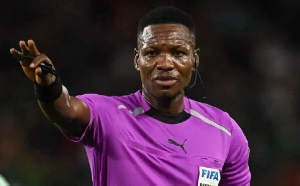There is a raging debate going on in Ghana about the direction of our education system. For any country to educate its citizens and prepare its children for the challenges of the future requires a persistent debate on education, its reform and direction all the time. Unfortunately, in the case of Ghana the debate has been reduced to the number of years children can spend in school. That debate in itself is not bad, because it should be part of any comprehensive conversation based on the challenges facing the nation, but to make the entire debate about the number of years is irresponsible and the leaders should be called on it right away before it becomes another fruitless debate.
It is a well know fact that the Ghana’s educational system was the envy of many African countries post independence. Many people form Nigeria, Liberia and Zimbabwe will testify to that and many continue to believe that Ghana has one of the best systems in Africa today. The question then is: what is wrong with the system today that has resulted in this irresponsible debate that is going on right now? The previous Kufour led government had promised education reforms that would propel the country into the 21st century and succeeded only by adding one year of schooling to the senior secondary school years and changing the name from ‘secondary school’ to ‘senior high school’. The new government of Prof. Atta Mills was opposed to that idea when they were in opposition and had also promised a revamp of the system when they come to office, but today all that talk has been reduced to the debate of the number of years that students have to spend at the SHS. After all, it is the (P)NDC government that introduced the JSS system after many years of deterioration and a nearly dysfunctional educational system in the 1980s. The real problems the country faces in its educational system has nothing to do with the number of years of basic education. It is about how relevant the system is to national development, how accessible is it to every citizen and how sustainable they system is in the long run.
It is unfortunate that successive governments have largely failed to heed the advice of the very professionals who have been charged to oversee the education system. Prof. Jophus Anamuah-Mensah, the VC of UEW and others have long argued that the problem in our system is not the number of years kids attend school, but the quality of education offered to them. In fact a majority of these scholars and researchers have argued that the shorter duration is the best provided the resources allocated to education are right.
There are those who dispute within the general public that the new educational system introduced in the 80s upon the recommendation of the Dzobo committee is the cause of all the problems in our educational system and that a reverse to the so-called old system based on the British model is the solution. Some even have reduced the whole debate to how well products of the old system can speak better English than products of the new system forgetting that all the unimpressive leaders we have had through the last three decades went through the so-called old system and have almost ruined our nation. Their argument is totally misplaced because the events that led to the formation of the Dzobo committee in the 70s to review the decaying education system were not related to education in itself. The decay was as a result of political instability with its resulting poor management, corruption and general macroeconomic turmoil as has been pointed out by numerous scholarly works on the issue. The most significant effect of these problems that led to the decay of the system was the exodus of well trained education professionals to other countries. Some of these same problems persist today, together with population growth, unemployment etc that have to be tackled in order to return to the pride of the 60s and 70s.
The new educational system was almost forced unto Ghana by the IMF. The Rawlings led government had no choice but implement it as part of its Structural Adjustment Program. In lieu of this the government did not think through it much, let alone address the political and socio-economic issues that had led to the failure of the old system. Many scholars continue to argue that the new system is better than the old system in several ways. First it brings our educational system more in line with the rest of the world and not just the UK. It is the same system implemented in the US, Canada, France, Germany, India, Japan and most of Latin America with only slight variations. Secondly, it is supposed to help the government and parents save on education by reducing the number of years people spend in basic and secondary schools. Numerous research have shown that quality education starts in the formative (basic) years and therefore the new educational system was to focus more on basic education, adding life and technical skills to the curriculum to broaden the knowledge of students at the basic level (Primary and JSS) before they proceeded to the secondary or technical level where they could specialize in certain elective courses from the beginning.
On paper, the new system remains better than the old system but the underlining problems that makes both system a failure remains and continue to get worse. The political situation has improved dramatically in 2009 than it used to be in the 80s and 90s. The macro-economic situation has also gotten better some what though poor management and corruption still largely persist. This is an opportune time for the government and stakeholder to begin to tackle the most important issues that confronts our education system today rather than debating how long kids should be in school.
First, as I mentioned above the retention of quality, well trained teaches has been the most significant missing link in our education system. There needs to be more emphasis on teacher training and serious effort should be made to improve the condition of teachers especially at the basic level. Motivated teachers produce good quality students and quality students make better citizens. In Ghana today there is an influx of private basic schools, which provide better conditions for their teachers and demand better results. These schools are producing the most brilliant kids at such an early age than we have even seen in our history. But these private schools are expensive and largely concentrated in the urban areas. Majority of kids of school going age attend public schools and this is where government has to step in to provide resources that will ensure that teachers are properly trained and their conditions of service improved at the bear minimum to match their counterparts in the private schools. Teachers should be made accountable when their students fail and there should be a career development program to ensure that teachers receive up to date and relevant training in the subjects they teach. At least they could be made to retake different levels of certification exams to ensure promotion etc. Many quality teachers are leaving the field because it has become a dead-end job and they are not really appreciated anymore like they used to be in the old days. Whether one spends 3 years, 4 years or 10 years in SHS will not matter if that person is not taught well.
Also there are so many co-called teachers today who have not had any training whatsoever as teachers. At least people should be made to study and take a teacher certification exam before they set foot in the class room to teach. This will ensure that the profession is for people who really want to be teachers and not people who resort to teaching as a last resort. Teacher certificate from the teacher training colleges should be converted to some sort of degree (say associate degree) programs so that it can provide a basis for further education in the field. These are hard choices, but it has to be taken if we want the system to succeed. Teachers play such a critical role in education and the situation of teaching and teachers must be what the debate is about and not how many years kids have to be in school.
Secondly, review of the education system should be an on-going process where curriculum is reviewed from time to time to reflect the developmental needs of the country. Student achievement especially at SHS/technical level should be attached to some real life goals so that the business can rely on the system to make good business decision. For instance after SHS students should be to take responsibilities with minimal training such as to become a bus conductor, a cashier or become bank teller easily. In other words educators and business people should come together to design the school curriculum so that students are well placed to take up above minimum wage jobs when they leave school. The system should be made flexible enough for people who were not able to continue to a tertiary institution after their secondary education to go back to school easily after years of work. If this happens, businesses would be better off hiring people with school certificates. Off course it is important that government creates the necessary conditions for these kinds of jobs to be created rather than the sort of buying and selling that is the order of the day now.
My last point concerns school management. I think public schools from JSS to the university level should be run by people with both education and business backgrounds. With a well defined set of goals and performance measurement, school managers (Headmasters and VCs) should be made to recognize that when company managers fail at their businesses they are removed, when politicians fail to deliver they are voted out and when schools fail to educate properly their managers should be booted out. We have an opportunity to use the impeding debate to shape our educational system so we can return it to levels better than it was in 60s and 70s when it was the envy of African and the world.
By: Osman Acheampong
http://blog.ucanmap.com
Opinions of Monday, 10 August 2009
Columnist: Acheampong, Osman












